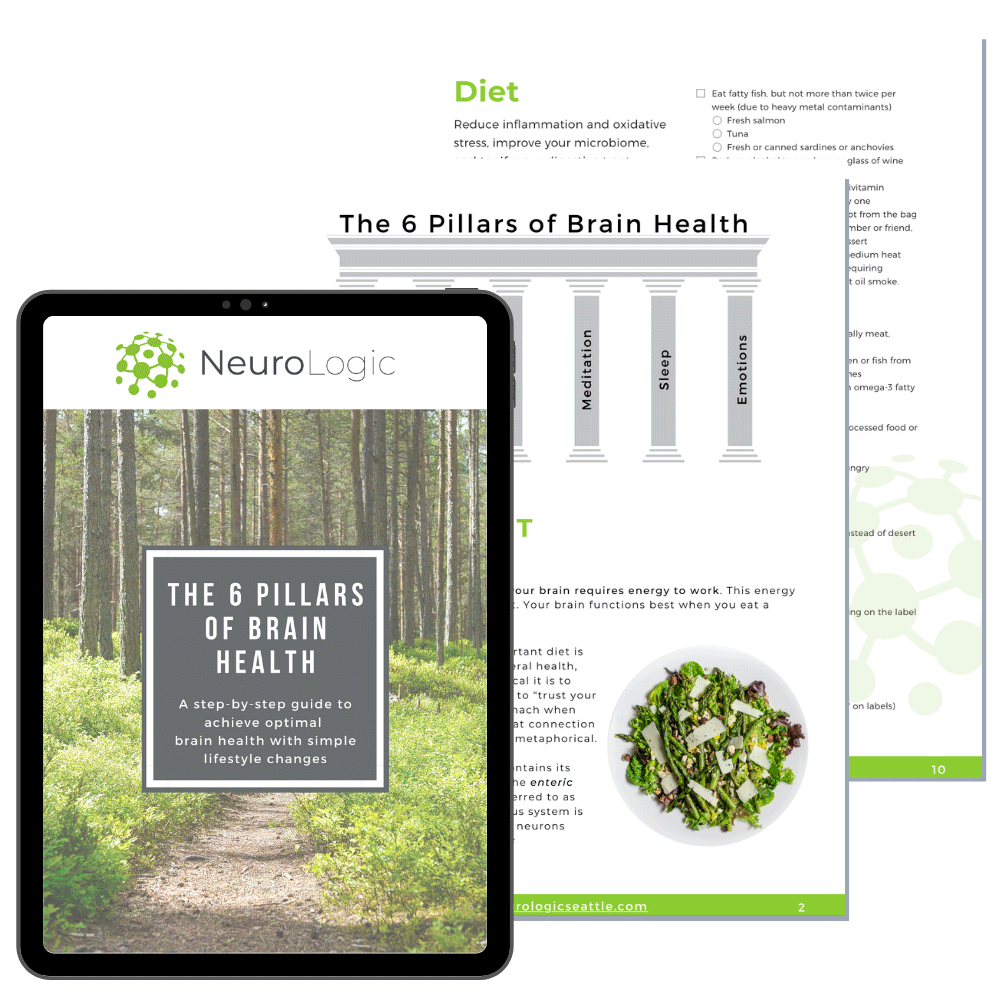In a world where the grind is often glorified, the toll it takes on mental and physical health cannot be ignored. At NeuroLogic Seattle, we advocate for prioritizing well-being by breaking free from the culture of overwork. This blog delves into the historical origins of overwork, its detrimental effects, and how neurofeedback therapy offers a new path to achieving balance.
The Historical Roots of Overwork:
Our propensity to overwork traces back through history, influenced by factors like the Protestant work ethic and the drive for efficiency during the Industrial Revolution. Today, in the digital era, the constant demand for productivity blurs boundaries between work and personal life, with smartphones fostering a culture of constant availability.
Understanding the Consequences:
Let’s face it – overwork isn’t just inconvenient; it’s a serious threat to well-being. Burnout, a result of chronic workplace stress, leads to exhaustion, negative job attitudes, and decreased effectiveness. It triggers an overactive sympathetic nervous system (often referred to as the fight or flight mode), resulting in various physical ailments:
- Persistent Fatigue: Chronic stress leads to perpetual exhaustion.
- Sleep Disruptions: Burnout disrupts sleep patterns, causing insomnia.
- Muscle Tension: Stress contributes to stiffness and tension headaches.
- Digestive Issues: Including indigestion, bloating, IBS and SIBO.
- Weakened Immunity: Prolonged stress suppresses the immune system.
- Heart Problems: Stress increases blood pressure and the risk of cardiovascular issues.
- Weight Gain: Burnout may trigger weight gain regardless of diet or exercise.
- Hormonal Imbalances: Stress disrupts hormonal balance, which can effect anything from libido to blood sugar control.
- Cognitive Impairment: Burnout affects concentration, memory, and mental clarity.
- Inflammation: Stress contributes to increases inflammation.
- Skin Problems: Stress manifests in skin issues such as acne, eczema, or psoriasis.
- Reproductive Challenges: Burnout impacts reproductive health.
Acknowledging the need for change is the first step to breaking free from overwork.
The Role of Neurofeedback Therapy:
Neurofeedback therapy offers a groundbreaking approach to reclaiming mental well-being. By monitoring brain activity and providing real-time feedback, this non-invasive technique empowers individuals to self-regulate. At NeuroLogic Seattle, we specialize in using neurofeedback therapy to address the challenges associated with overwork.
How Neurofeedback Therapy Can Help:
Ready to escape the stress spiral? Neurofeedback therapy is your brain’s ticket to freedom.
- Stress Reduction:
- By targeting stress-related brainwave patterns, neurofeedback promotes relaxation and reduces overall stress levels.
- Improved Focus:
- Optimizing brain function with neurofeedback improves cognitive abilities, enhancing focus, clarity, and productivity.
- Better Sleep:
- Neurofeedback addresses sleep disturbances promoting deeper and more restful sleep.
- Increased Resilience:
- Neurofeedback therapy builds resilience, allowing individuals to easily cope with the high demands of modern life.
So, there you have it – the consequences of burnout and a glimpse into the world of neurofeedback therapy. Ready to break free from the chaos of overwork? Your brain says, “Let’s do this!”
Acknowledge the need for change, actively prioritize mental well-being, and imagine a world where success encompasses not only accomplishments but also the overall well-being of individuals. NeuroLogic Seattle is your companion on this transformative path, ensuring you stay aligned with this evolving paradigm.
Book your free 15-minute consultation with the doctor now!

